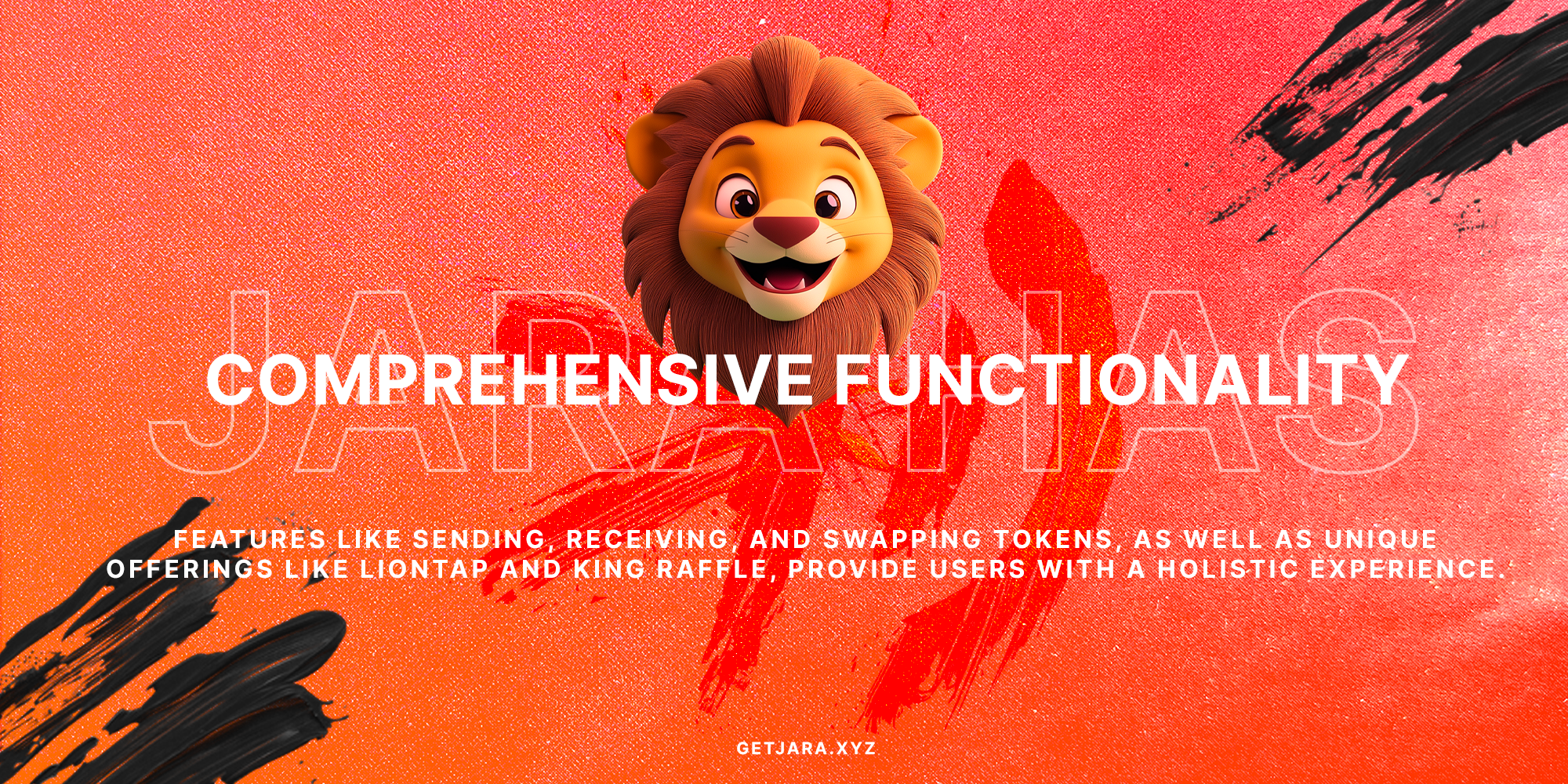Introduction to Smart Contracts in DeFi
Smart contracts are integral to the workings of Decentralized Finance (DeFi), automating financial transactions without intermediaries. These self-executing contracts, written in code, operate on blockchain networks, offering transparency, speed, and reliability. Within the DeFi landscape, understanding the role and application of smart contracts is crucial for innovation and development.
What are smart contracts? Smart contracts are self-executing contracts with the terms of the agreement directly written into code, and they are automatically enforced on blockchain platforms.
The revolution of Decentralized Finance rests largely on the blockchain’s ability to eliminate intermediaries. Think of a vending machine—when you insert the correct currency, it automatically dispenses the product you chose, without a cashier. Similarly, smart contracts facilitate trustless agreements between parties, eliminating the need for banks or lawyers.
Within the vast ecosystem of DeFi, smart contracts serve as the engine, driving the ability to create, validate, and enforce digital agreements under pre-set conditions. They are the reason traditional contracts can be replaced by their decentralized counterparts, making financial services not only transparent but also accessible to anyone, anywhere.
One of the most compelling advantages is the cost-effectiveness. By removing the middlemen, transaction costs are reduced significantly, making DeFi more attractive compared to traditional financial services. Furthermore, the automation brought about by smart contracts accelerates transaction speed, overcoming delays commonly seen in legacy systems.
In an era where data breaches and fraud are growing concerns, the security provided by blockchain technology becomes crucial. Once a transaction is recorded on the blockchain, it is immutable, ensuring that execution is carried out exactly as promised—no more, no less. This guarantees an increased level of security and trust, something often lacking in conventional systems.
As African markets continue evolving, the implementation of smart contracts could transform numerous sectors, bridging the gap between global capital and local assets, as seen in platforms like Jara. Jara is not just building essential infrastructure but is also spearheading innovative projects in Africa, such as the tokenization of the Lagos airport, fostering accessible investment opportunities and boosting economic development.
“Invest in $JARA: Fuel Africa’s $200B+ Digital Asset Economy—Join the Revolution with our seamless ecosystem tailored for the WhatsApp generation.”
By promoting financial inclusivity, smart contracts in DeFi are poised to democratize access to capital markets for African entrepreneurs and consumers. This shift symbolizes a powerful step towards a more equitable economic landscape, where opportunities are reserved not just for a privileged few but are accessible to anyone eager to participate in Africa’s digital revolution.
How Smart Contracts Enable DeFi Applications
Key Features and Benefits
Smart contracts are the engine driving the transformative power of decentralized finance (DeFi). These self-executing programs enable various DeFi applications by ensuring trustless interactions between parties, providing a framework that is both secure and efficient. But what exactly makes smart contracts essential for DeFi?
- Enhanced Security: In traditional finance, transactions often rely on central authorities like banks, which introduces a risk of fraud or manipulation. Smart contracts, operating on decentralized blockchain networks, ensure that once a contract is executed, its terms are immutable and transparent, significantly reducing fraud risk.
- Automation and Efficiency: Imagine your bank loan automatically issuing money upon fulfillment of conditions without a human clerk. Smart contracts automate this process, executing transactions instantly and reducing the need for manual intervention. Hence, lending, borrowing, and trading become quicker and more cost-effective.
- Counterparty Risk Elimination: Traditional financial systems constantly struggle with counterparty risks—the chance one party won’t fulfill their part of a deal. Smart contracts eliminate this worry by only executing transactions when predetermined conditions are met, minimizing trust issues in transactions.
What is a smart contract? A smart contract is a self-executing contract with the terms of the agreement directly written into code, ensuring transparency and trustless transactions within decentralized finance (DeFi) applications.
This innovative technology does not work in a vacuum. It powers a multitude of innovations like decentralized exchanges and lending protocols. Each smart contract operates independently, executing complex financial operations that once required armies of human brokers and weeks of paperwork.
Moreover, the interoperability and composability of smart contracts allow them to interact with each other across various platforms, creating a synergy that drives innovation in financial products and services. Whether it’s creating decentralized lending services or automated market makers, smart contracts empower developers to craft tailored DeFi solutions.
Now, take Jara, for example, a burgeoning player in Africa’s digital asset economy. With its focus on tokenizing real-world assets, Jara uses smart contracts to streamline intricate financial transactions, offering investors access to Africa’s $200-billion digital asset market—a revolution in action!
“Jara – a social-first approach to Africa’s digital future, seamlessly integrating with smart contracts to fuel a $200-billion market.”
Different smart contract languages, such as Solidity, provide various tools tailored for specific DeFi operations. But with great automation comes the responsibility of auditing these scripts rigorously, considering security is paramount. After all, even a small bug in the code can lead to significant financial loss.
Despite their challenges, such as potential vulnerabilities in the code or regulatory ambiguities, the flexibility and robustness offered by smart contracts in DeFi make them indispensable to the ecosystem. As we delve deeper into programmable financial solutions, stakeholders and developers alike are unlocking new potentials that redefine financial operations.
In summary, smart contracts, as a foundation for DeFi, are revolutionizing traditional finance models in Africa and beyond. From increased transparency to reduced operational costs, they offer unparalleled benefits that accelerate financial inclusion and economic empowerment.

Security Concerns in DeFi Smart Contracts
Although smart contracts offer numerous advantages, security remains a top concern in Decentralized Finance (DeFi). Vulnerabilities in code can lead to significant financial losses, necessitating thorough audits and robust security practices. The decentralized nature of DeFi means that these smart contracts operate without a centralized authority, making them vulnerable to various security risks.
Why is DeFi security crucial? DeFi security is vital because vulnerabilities in smart contracts can lead to massive financial losses and impact trust within the ecosystem.
To ensure trust and widespread adoption in the DeFi ecosystem, developers must prioritize security at every stage of smart contract development. This includes performing rigorous security audits and employing best practices for securing code. Despite these measures, security challenges continue to plague the DeFi space, with frequent reports of hacks and exploits due to flaws in smart contracts.
Types of Security Vulnerabilities
- Reentrancy Attacks: This is a type of exploit where a malicious actor re-enters a smart contract multiple times before the initial transaction is completed, siphoning funds in the process. Mitigating this often involves using checks-effects-interactions patterns.
- Integer Overflow and Underflow: When arithmetic operations exceed or underflow the storage limits, unintended behaviors can occur. Developers can mitigate these risks by using safe math libraries.
- Front Running: Involves malicious actors observing pending transactions on the blockchain and racing to execute transactions that benefit them.
- Flash Loan Attacks: These are rapid attacks where large sums are borrowed and manipulated to destabilize DeFi protocols, often exploiting vulnerabilities in pricing oracles or liquidity protocols.
Addressing these vulnerabilities requires not only proactive auditing and testing but also real-time monitoring of transactions and behaviour patterns that suggest potential attacks. As smart contracts use cases in Africa grow, especially with projects like Jara, ensuring that security protocols remain a top priority is essential for building trust and maintaining user confidence.
“Secure today for a resilient tomorrow” is a principle we stand by, knowing that a secure foundation is paramount for smart contract success in DeFi.
Best Practices for DeFi Smart Contract Security
Transitioning to best practices, the first step is often implementing a comprehensive security framework. Here are some recommended approaches:
- Code Auditing: Regular audits, possibly involving third-party security experts, can identify and address vulnerabilities early in development.
- Testing: Employ extensive testing methodologies, including unit tests and integration tests, to simulate various scenarios and catch bugs.
- Formal Verification: Use formal methods to mathematically prove that a smart contract behaves as intended.
- Bug Bounty Programs: Encourage ethical hackers to find and report bugs by offering rewards, thus tapping into a wider pool of expertise.
Security remains a continuous process, especially in such a rapidly evolving field as DeFi. By adhering to these best practices, the risk of security breaches can be significantly minimized, fostering a safer DeFi landscape.
Notable DeFi Security Breaches
Several notable security breaches have highlighted the importance of robust security measures. One of the real-world examples includes unauthorized siphoning of user funds from a DeFi protocol due to a reentrancy attack. Such events emphasize the critical need for the DeFi community to adopt a proactive security stance. By learning from these incidents, developers and users alike can contribute to a more resilient and secure DeFi environment.
Jara is committed to securing its ecosystem as it fuels Africa’s $200B+ digital asset economy, safeguarding user assets through innovative security measures.
The Future of Smart Contracts in DeFi
Emerging Trends
The realm of Decentralized Finance (DeFi) is evolving at breakneck speed. One of the pivotal components driving this transformation is the smart contract. As these digital agreements continue to develop, several emerging trends are set to redefine how we perceive and interact with financial systems. Embracing smart contract automation, these trends can potentially revolutionize DeFi through enhanced efficiency and interoperability.
How do smart contracts in DeFi ensure security? Smart contracts offer enhanced security by automating and executing transactions based on predefined rules, thereby eliminating the need for trust between parties.
AI Integration with Smart Contracts
Artificial intelligence is increasingly being integrated with smart contracts to enhance their capabilities. Imagine AI-powered smart contracts that can dynamically adjust terms based on real-time data or market conditions. This integration not only augments decision-making processes but also increases the adaptability of DeFi applications, making them more resilient to market fluctuations.
“Jara – Unlocking the Future to Africa’s Crypto Ecosystem” – through AI and blockchain synergy, we are set to transform African asset accessibility.
Cross-Chain Interoperability
One of the significant challenges facing DeFi is the isolation of different blockchain ecosystems. However, smart contracts are now leveraging cross-chain interoperability to bridge these gaps. Projects are utilizing technologies like blockchain bridges, allowing assets and data to be exchanged across different chains seamlessly. This trend not only expands the reach of DeFi applications but also enhances liquidity management across platforms.
What is cross-chain interoperability? Cross-chain interoperability refers to the ability of different blockchain networks to interact and share information seamlessly, enhancing the functionality of DeFi applications.
Scalability Solutions
As the DeFi sector grows, so does the strain on blockchain networks. Smart contracts are at the forefront of implementing scalability solutions like layer 2 technologies. These solutions, such as sidechains and rollups, help manage transaction loads by processing data off-chain, thereby improving speed and reducing costs. This enhancement is crucial for accommodating an increasing number of users without compromising performance.
Enhanced Security Protocols
Security remains a top priority for the future of smart contracts in DeFi. Innovations in security protocols, such as multi-signature verifications and decentralized identity solutions, are reinforcing the integrity of financial transactions. Regular security audits and vulnerability assessments are becoming standard practice to prevent breaches, fostering greater trust among users.
Smart contracts are rapidly becoming the backbone of financial ecosystems, supporting a range of applications from gaming to supply chain transparency. The evolution of these contracts will play a critical role in shaping modern finance paradigms.
Interested in understanding the full potential of smart contracts? Delve further into how they compare with traditional contracts and the advantages they bring to various industries.

What is the primary function of smart contracts in DeFi?
Smart contracts in DeFi are designed to automate and facilitate financial transactions without the need for intermediaries. They are crucial in executing complex financial processes, providing transparency and efficiency in decentralized finance systems.
How do smart contracts improve financial transaction security?
Smart contracts enhance financial transaction security by leveraging blockchain’s immutable nature, which prevents unauthorized modifications. This reduces the risk of fraud and ensures contract integrity in DeFi platforms.
Are smart contracts legally enforceable?
The legal enforceability of smart contracts depends on jurisdiction and specific legislation in place. Generally, they are recognized for their ability to automate agreed terms, but legal recognition can vary, so it’s advisable to consult legal experts familiar with crypto regulations.
What are some challenges associated with smart contract implementation in DeFi?
Challenges with smart contract implementation in DeFi include security vulnerabilities, potential coding errors, and the need for regular audits. Additionally, achieving cross-chain compatibility and addressing scalability issues are crucial for their widespread adoption.

Related Practice Areas
Explore other areas where our expertise can assist you in navigating Smart Contracts & Automation effectively.
Discover What Our Clients Are Saying
At the forefront of our Smart Contracts & Automation practice is a deep-seated commitment to client satisfaction. Each case is handled with utmost care, as echoed in the appreciative feedback from those we represent.

Contact Us for Smart Contracts Expertise in DeFi
Are you ready to explore the exciting world of decentralized finance and want guidance from top experts in smart contracts and automation? At Jara, we are dedicated to helping you navigate the complexities of DeFi with confidence and ease.
“Your Vision, Our Priority” – Partner with us to unlock the potential of smart contracts in DeFi and transform your financial experience today.
Connect with Jara through our official website: www.getjara.xyz or reach out via email: [email protected].
Join countless clients who have benefited from our seamless integration of global capital and African assets. Download the Jara app for a streamlined DeFi experience:
- Android: Download from Google Play
- iPhone: Download from the App Store
Don’t let the future pass you by—embrace innovation with Jara and redefine your financial possibilities today!
About the Author
Jane Doe is a seasoned blockchain expert and financial technology writer with over a decade of experience. She specializes in decentralized finance, smart contracts, and the evolving landscape of cryptocurrency. Her insights have been featured in several top-tier financial publications.

















